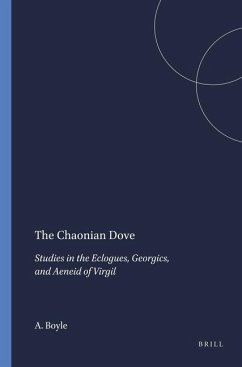This is the first book-length critical study of the three Virgilian works to be published in English for twenty years. It examines in detail the thematic design and intent of the Eclogues, Georgics and Aeneid, and documents the development of their political, moral and poetic pessimism. It presents the interrelationship of the three texts, their intertextuality, as integral to their meaning. The book is in three main parts - 'Pastoral Meditation', 'Didactic Paradox', 'Epic Vision' - corresponding to the three Virgilian works. A brief introductory chapter is concerned with questions of method and the problem of Virgil misread. A chief focus of the book is Virgil's preoccupation with the relationship between poetry, art - art's values, perceptions, visions - and the political/historical world, and the changing nature of Virgil's attitude to the socio-moral responsibilities of Rome. The evolution of Vergil's presentation both of Roman imperium and of man's place in nature and history is carefully delineated. With close scrutiny of the language, imagery, structures and design of the three texts and of their verbal and thematic interrelationship, the book offers a substantial reassessment of the major political, psychological and moral ideas of Virgil's poetic oeuvre. An intricate and persuasive picture emerges of Virgil's intellectual and poetic development and a radically new conception of Virgil's image of himself as poet. The provision of translations makes the book accessible to the Latinless reader.
Bitte wählen Sie Ihr Anliegen aus.
Rechnungen
Retourenschein anfordern
Bestellstatus
Storno

